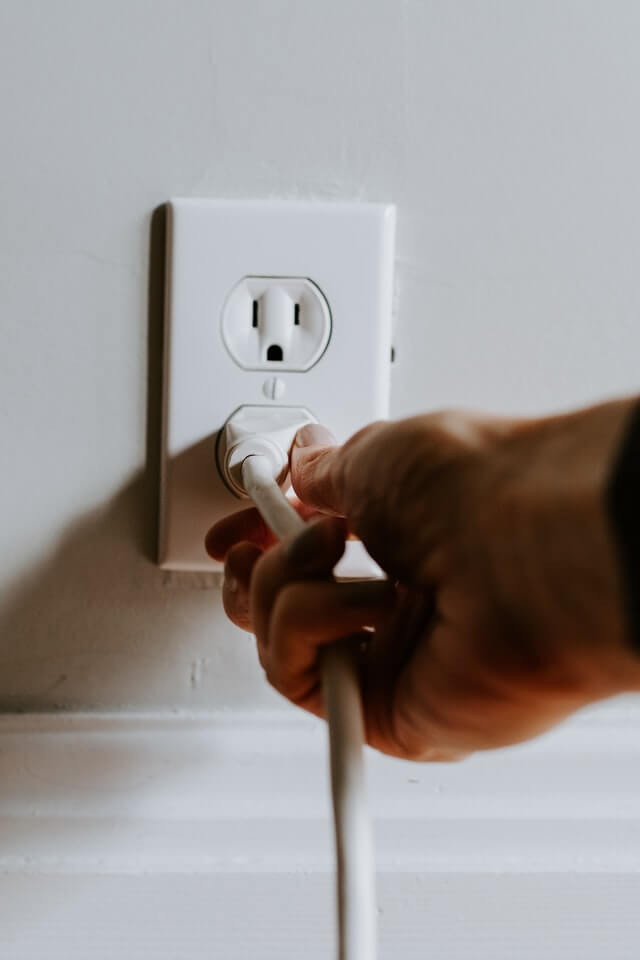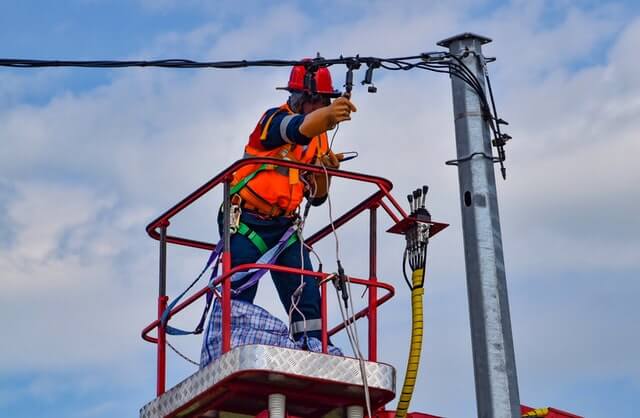All of us have a common question, why does my power keep going out? Here are some of the most prevalent reasons for power outages, as well as what to do about them.
We’ve all dealt with it at some point. Your home’s power will go off. However, there are a variety of reasons why the lights stop operating, and each one requires a different solution.
Causes

The electricity goes out for one of two reasons:
- A tripped circuit breaker or fuse in your home,
- The power cables themselves are damaged.
In the latter situation, the cause may be due to weather mostly. Trees knocked over by the wind can crash into power lines, ice and snow can pull power lines down, lightning storms can strike utility poles, shutting down transformers, and so on.
If your home’s electrical system is normally reliable but the power goes out during a storm, it’s most likely due to an external cause.
More rarely, some other causes can damage wires:
- Animals biting at the wrong place at the wrong time,
- A motorist losing control and damaging a utility pole.
People Who Read This Article Also Read: What Causes an Intermittent Power Outage and How to Solve It?
Circuit Overloads
Circuit overload is one of the most common causes of your question why does my power keep going out on a regular basis. This happens when you desire a specific circuit to give more electricity than it actually has.
This will cause the circuit to overheat, putting all of the electrical appliances connected to the circuit at risk.
For example, suppose your television connection requires 15 amps but is now utilizing 20 amps. Then there will be damages to the television system’s circuit. To prevent this from happening, the circuit breaker trips, potentially preventing a huge fire.
Short Circuits
A short circuit is more harmful than any overload circuit. It is another typical reason for circuit breakers to trip.
A short circuit occurs when a “hot” wire in one of your electrical outlets comes into contact with a “neutral wire.” When this happens, a high quantity of current flows through the circuit. This produces more heat than the circuit can tolerate. When this occurs, the breaker trips, shutting down the circuit and preventing potentially dangerous events such as a fire.
Ground Fault Surges
Surges due to ground faults are identical to short circuits. They happen when a hot wire comes in direct contact with a bare copper ground wire or the side of a metal outlet box.
This will cause more electricity to flow through it, which the circuit will be unable to handle. The circuit breaker trips to safeguard the circuit and appliances from overheating or potential fires.
If ground fault surges occur, you will notice discoloration around your outlet. If you disregard or overlook any of these issues, you are risking the safety of your house. If your circuit breakers are often tripping, it is time to call in the pros to investigate the cause.
Do not try to solve this problem on your own!
Now if you want some solutions to your problem, “why does my power keep going out?” then follow the points below.
What to Do?
If the electricity goes out due to power line damage, there isn’t much you can do. Most of the time, you’ll just have to wait. Fixing power lines is a dangerous job that is typically done under adverse conditions. It may be helpful to switch off essential devices, such as lights you won’t be using, and then turn them back on one at a time, in case there is a surge when the power comes back.

- Try redistributing the load, circuit breakers, and fuses that are safety measures when you pull too much electricity through a circuit.
- Redistribute the items you have connections in, or unplug them.
- Call your provider and ask them what service level you have at your house. Do you have 60amp, 100amp, 200amp? etc.
- If you have 100 amp or less, it’s likely you’re throwing the main breaker because you’re asking for more than 100 amps.
- An AC unit for instance might take up half that on its own. Add a freezer, then a microwave, and a home entertainment system, you’re already at 100amp.
- Make sure nothing is overheating. If something doesn’t look right, I would have an electrician out immediately. It’s not worth catching your house on fire.
- When a circuit breaker trips, you must go outdoors or down the basement, to turn the electricity back on.
- It is critical to give that strategic attention while designing the circuit breaker so that safe arc interruption stays during circuit breaker operation.
People Who Read This Article Also Read: Overhead Line Sag Tension with Calculation and Example | Perfect Maths 2021
Test For Circuit Overload
A circuit overload occurs when more electrical current than the wires can handle is put through them.
This causes them to overheat and trip the circuit breaker. When the breaker trips, you remark that power goes out in your living room and half of your kitchen.
This implies that a single circuit is powering many outlets and switches. This is most likely putting too much strain on the circuit. This wiring design is prevalent in homes older than 40 years before we use a lot of electrical appliances and devices (big-screen TVs, PCs, space heaters, and powerful kitchen appliances).
To test for circuit overload:
- Go to the electrical panel the next time the breaker trips and turn off all the switches in the affected area, as well as unplug all appliances, lamps, and other equipment.
- Replace the breaker, then turn on the switches
- Then plug in/turn on the devices one at a time. Wait a few minutes between tests to see if the circuit remains active.
- Every time you turn on a light or use an appliance, additional electricity is drawn through the cables.
- If the breaker trips before all of the appliances are put on, repeat the experiment, but this time turn on the appliances in a different order.
You may need to repeat the process multiple times to get a decent idea of how many appliances you can run simultaneously without overloading the circuit. If you need to know why does my power keep going out, then all the above reasons are the most evident ones.
Conclusion
I hope you enjoyed my ultimate guide to your question why does my power keep going out and how to remedy it.
If the power goes out on your block on a clear day, you should notify your electrical utility right away. If power has gone out only in your house, or if certain items operate but others don’t, it’s a clue that the problem is somewhere in your electrical system.
Now I’d like to hear from you: why does my power keep going out, really? I hope you got your answer!
Either way, let me know by leaving a quick comment below.


